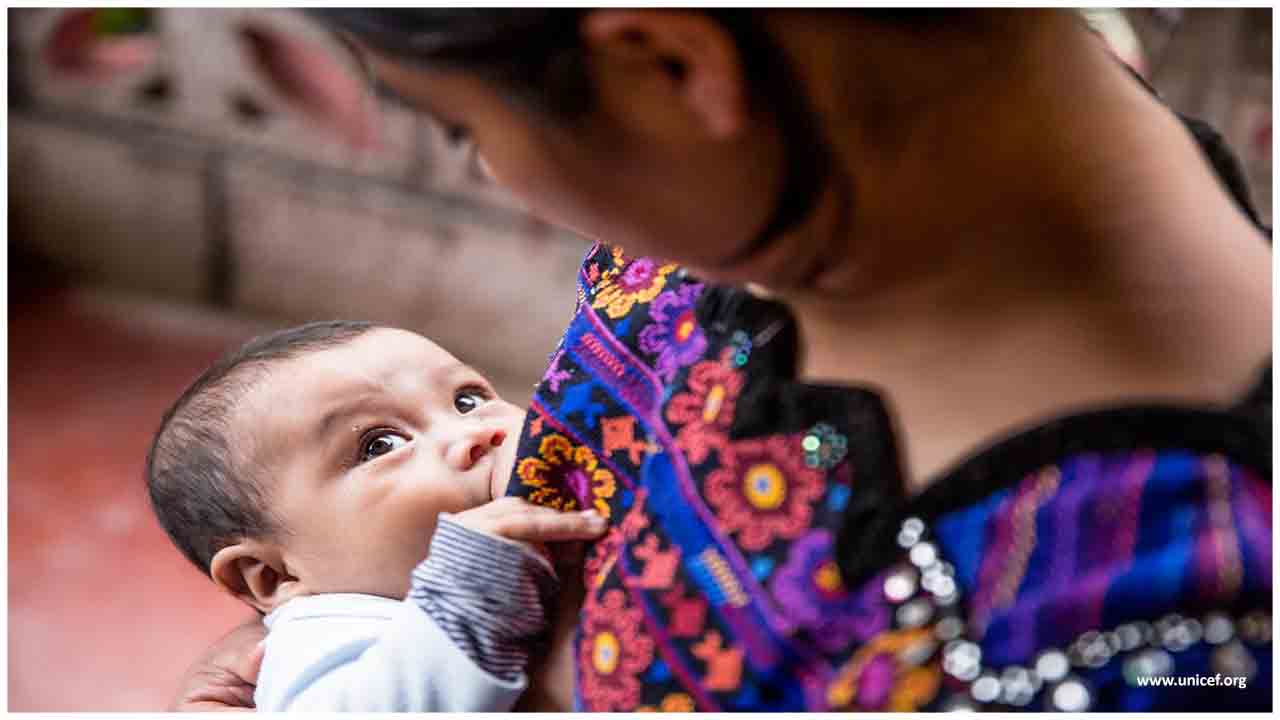A new report by WHO, UNICEF, and the International Baby Food Action Network (IBFAN) reveals that despite efforts to stop the harmful promotion of breast-milk substitutes, countries are still falling short in protecting parents from misleading information.
The COVID-19 pandemic highlights the need for stronger legislation to protect families from false claims about the safety of breast-milk substitutes or aggressive marketing practices. Breastmilk saves children’s lives as it provides antibodies that give babies a healthy boost and protect them against many childhood illnesses.
WHO and UNICEF encourage women to continue to breastfeed during the COVID-19 pandemic, even if they have confirmed or suspected COVID-19. While researchers continue to test breastmilk from mothers with confirmed or suspected COVID-19, current evidence indicate that it is unlikely that COVID-19 would be transmitted through breastfeeding or by giving breastmilk that has been expressed by a mother who is confirmed or suspected to have COVID-19. The numerous benefits of breastfeeding substantially outweigh the potential risks of illness associated with the virus. It is not safer to give infant formula milk.
Of the 194 countries analysed in the report, 136 have in place some form of legal measure related to the International Code of Marketing of Breast-milk Substitutes and subsequent resolutions adopted by the World Health Assembly (the Code). Attention to the Code is growing, as 44 countries have strengthened their regulations on marketing over the past two years.However, the legal restrictions in most countries do not fully cover marketing that occurs in health facilities. Only 79 countries prohibit the promotion of breast-milk substitutes in health facilities, and only 51 have provisions that prohibit the distribution of free or low-cost supplies within the health care system.
Only 19 countries have prohibited the sponsorship of scientific and health professional association meetings by manufacturers of breast-milk substitutes, which include infant formula, follow-up formula, and growing up milks marketed for use by infants and children up to 36-months old.
“The aggressive marketing of breast-milk substitutes, especially through health professionals that parents trust for nutrition and health advice, is a major barrier to improving newborn and child health worldwide,” says Dr Francesco Branca, Director of WHO’s Department of Nutrition and Food Safety. “Health care systems must act to boost parent’s confidence in breastfeeding without industry influence so that children don’t miss out on its lifesaving benefits.”
WHO and UNICEF recommend that babies be fed nothing but breast milk for their first 6 months, after which they should continue breastfeeding – as well as eating other nutritious and safe foods – until 2 years of age or beyond.
As it is breastfeeding is under threat as health systems stretched thin.Babies who are exclusively breastfed are 14 times less likely to die than babies who are not breastfed. However, today, only 41% of infants 0–6 months old are exclusively breastfed, a rate WHO Member States have committed to increasing to at least 50% by 2025. Inappropriate marketing of breast-milk substitutes continues to undermine efforts to improve breastfeeding rates and the COVID-19 crisis is intensifying the threat.
Health care services aimed at supporting mothers to breastfeed, including counselling and skilled lactation support are strained as a result of the COVID-19 crisis. Infection prevention measures, such as physical distancing make it difficult for community counselling and mother-to-mother support services to continue, leaving an opening for the breast-milk substitute industry to capitalize on the crisis, and diminish confidence in breastfeeding.
“As the COVID-19 pandemic progresses, health workers are being diverted to the response and health systems are overstretched. At such time, breastfeeding can protect the lives of millions of children, but new mothers cannot do it without the support of health providers,” said Dr. Victor Aguayo, UNICEF’s Chief of Nutrition. “We must, more than ever, step up efforts to ensure that every mother and family receive the guidance and support they need from a trained health care worker to breastfeed their children, right from birth, everywhere.”
The Code bans all forms of promotion of breast-milk substitutes, including advertising, gifts to health workers and distribution of free samples. Labels cannot make nutritional and health claims or include images that idealize infant formula. Instead, labels must carry messages about the superiority of breastfeeding over formula and the risks of not breastfeeding.
WHO and UNICEF call on governments to urgently strengthen legislation on the Code during the COVID-19 pandemic. Governments and civil society organizations should also not seek or accept donations of breast-milk substitutes in emergency situations.
“The fear of COVID-19 transmission is eclipsing the importance of breastfeeding – and in too many countries mothers and babies are being separated at birth – making breastfeeding and skin to skin contact difficult if not impossible. All on the basis of no evidence. Meanwhile the baby food industry is exploiting fears of infection, promoting and distributing free formula and misleading advice – claiming that the donations are humanitarian and that they are trustworthy partners,” says Patti Rundall, of IBFAN’s Global Council.

 Agencies encourage women to continue to breastfeed during the COVID-19 pandemic
Agencies encourage women to continue to breastfeed during the COVID-19 pandemic



































